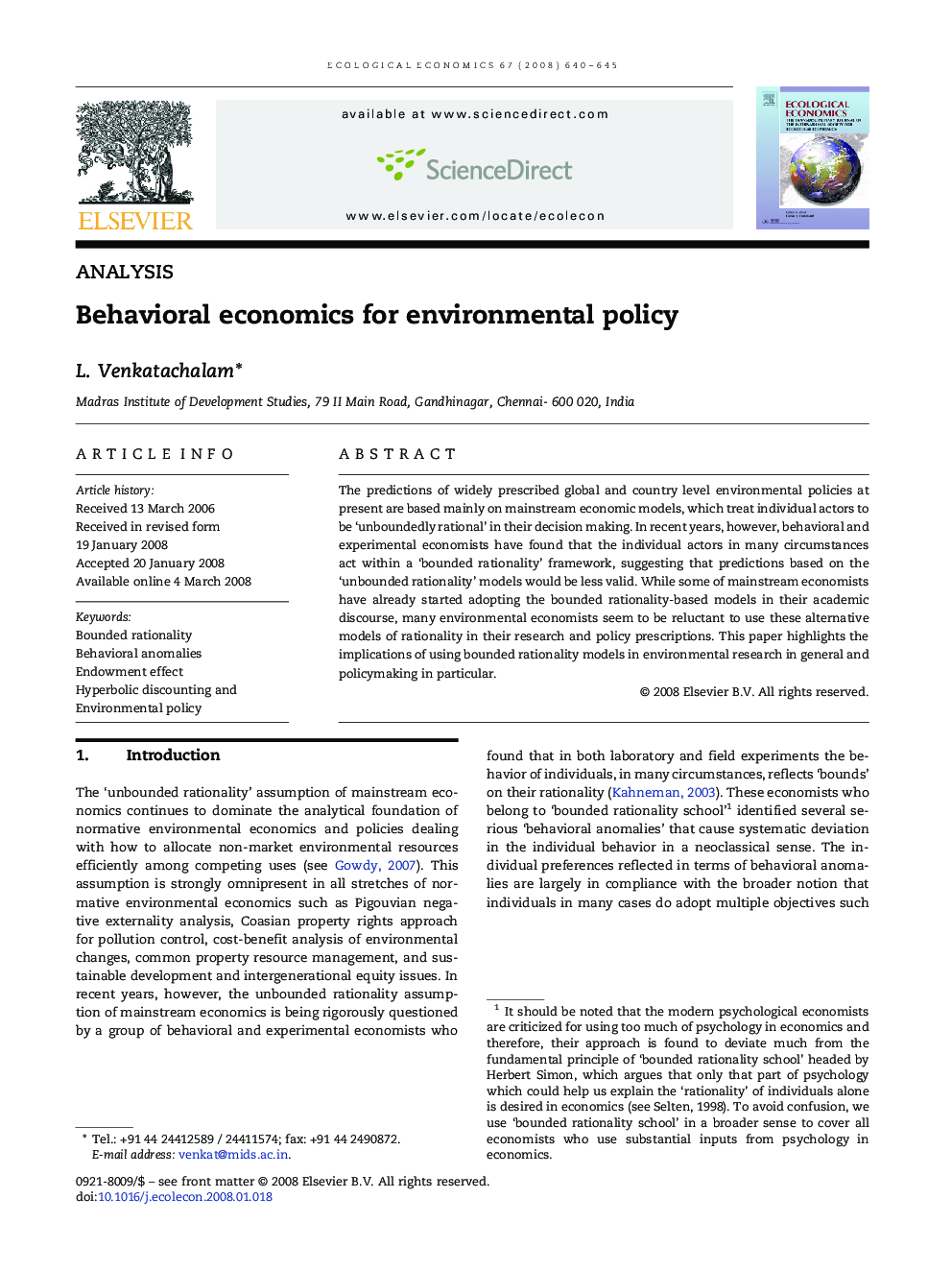| Article ID | Journal | Published Year | Pages | File Type |
|---|---|---|---|---|
| 5051784 | Ecological Economics | 2008 | 6 Pages |
Abstract
The predictions of widely prescribed global and country level environmental policies at present are based mainly on mainstream economic models, which treat individual actors to be 'unboundedly rational' in their decision making. In recent years, however, behavioral and experimental economists have found that the individual actors in many circumstances act within a 'bounded rationality' framework, suggesting that predictions based on the 'unbounded rationality' models would be less valid. While some of mainstream economists have already started adopting the bounded rationality-based models in their academic discourse, many environmental economists seem to be reluctant to use these alternative models of rationality in their research and policy prescriptions. This paper highlights the implications of using bounded rationality models in environmental research in general and policymaking in particular.
Keywords
Related Topics
Life Sciences
Agricultural and Biological Sciences
Ecology, Evolution, Behavior and Systematics
Authors
L. Venkatachalam,
